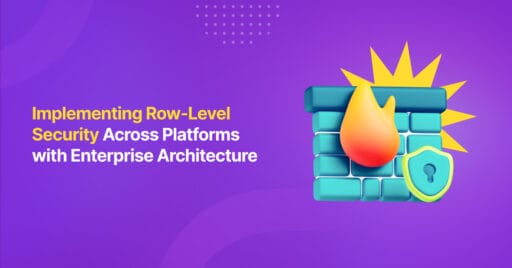Remembering dozens or hundreds of long, strong, and unique passwords for every credential can become “Mission Impossible” without a password manager. If you use the same password for all accounts or hard copy them all to a disk, there is a high risk of a security breach, and unknown actors could steal your personal information.
You can use web browsers like Firefox and Chrome for managing passwords or other login data, but they do not provide the ability to generate a strong password and share them securely. That’s why we recommend dedicated password manager applications.
Password Managers and Why You Need Them
A password manager is an encrypted digital vault that stores a secure password or sensitive information to access web apps, digital debit and credit cards, and other services. These apps secure your credentials and have a password generator to create strong, unique, and customized passwords to ensure you use different passwords in multiple places.
There are many popular password managers in the market, such as Keeper, Bitwarden, 1Password, LastPass, etc. Most of them come with paid plans, but some, like Bitwarden and LastPass, offer a free program for a single user. In this article, let’s take a closer look at their features to see which suits your needs best.
- Overview and supported platforms
- Basic features
- Plans and pricing
- User experience
LastPass vs. Bitwarden: Overview
LastPass was founded in 2008 to provide seamless password security for individuals and businesses. LastPass is one of the best options for password managers that offers plenty of features, including generating unique passwords, secure sharing, cross-platform syncing, password strength reports, and dark web monitoring.
On the other hand, Bitwarden is an open-source, secure, and transparent password manager. Debuted in 2016, Bitwarden released its mobile applications for Windows, macOS, Linux, Android, iPhone, and iPad. Its browser extensions are available for Chrome, Firefox, Safari, Edge, Opera, Vivaldi, Brave, and Tor. This is the only open-source password manager that offers an impressive range of features in its free plan.
| LastPass | Bitwarden | |
| Security |
|
|
| Pricing |
|
|
| Features |
|
|
| Supported platform |
|
|
LastPass vs. Bitwarden: Security
Both have implemented military-grade AES-256-bit encryption with PBKDF2 SHA-256 and salted hashes to ensure complete security in the cloud. They also have a ‘zero-knowledge’ architecture to ensure that the items you save in their vault may only be decrypted client-side by using a master password. Users can create a password manager account, email address, and a strong master password to generate a unique encryption key locally. The data is encrypted and decrypted at the device level. Data stored in the user’s vault is kept secret. Neither Bitwarden nor LastPass can access any of your data. They do not send master passwords, and the keys used to encrypt and decrypt data to their servers are never accessible.
LastPass vs. Bitwarden: Basic Features
Autofill Password
Of course, autofill is a feature that they should include in most web browsers, but password managers can provide extra services with better security encryption. LastPass autofill is faster than Bitwarden. LastPass instantly fills out forms when you hover over them, but with Bitwarden’s autofill feature, you need to right-click on the form, click Bitwarden, then click auto-fill.
Secure Sharing
You can share Text in both free plans, but to share Files, you would need to upgrade the plan to Premium for both password managers. LastPass will send an email to the recipient with a secure link to the shared login credentials. The recipient must have a LastPass account to access the shared login information. On the contrary, Bitwarden users can share even with non-Bitwarden users. If you share using an email address, Bitwarden sends an email to the recipient with a secure link to the shared login credentials. The recipient must have a Bitwarden account to access the shared login information. If you communicate using a sharing URL, you can send the URL to the recipient, who can access the shared login credentials by clicking on the link. Additionally, in a Family plan, we can share files or passwords with up to six other users, and the Business plan lets you communicate with unlimited users.


Account Recovery
LastPass has a few options for account recovery when you forget the master password. First, they have a password hint, recover via text message, recover the account through a mobile account, or use an earlier master password. In contrast, Bitwarden only offers one method – a recovery code, which will show up on the first set-up 2FA.
LastPass vs. Bitwarden: Plans and Pricing
Both LastPass and Bitwarden offer a Free plan with impressive features. Their paid plans are both affordable, but Bitwarden costs less money than expected compared to LastPass. In addition, they offer three programs for personal users—Free, Families, and Premium– and two for business use—Teams and Business/Enterprise.
The free edition has all the standard password manager capabilities, including unlimited password storage, syncing across multiple devices (desktop or mobile), one-to-one sharing, 2FA compatibility, a password generator, secure notes, and auto-fill password.
| Free | Premium | Families | |
| Bitwarden | $0 Free forever | < $1 per month $10 billed annually | $3.33 per month Up to 6 users $40 billed annually |
| LastPass | $0 Includes a 30-day trial of premium | $3 per month billed annually | $4 per month billed annually |
| Teams | Business | |
| Bitwarden | $3 per user/month | < $5 per user/month |
| LastPass | $4 per user/month billed annually | $6 per user/month billed annually |
LastPass vs. Bitwarden: Summary
For customers concerned about security, sharing credentials using a password manager application is highly recommended instead of communicating via chat or writing them down in a book or notes. Overall, both password managers work great with impressive features and affordable plans.
In the author’s view, Bitwarden steals the podium with a cost-effective paid plan with many features. Also, Bitwarden is open-source, transparent, and widely audited.
However, LastPass is worth every penny by providing additional services like dark web monitoring, security dashboard and score, and account recovery.
The best password manager will ultimately depend on your specific needs and preferences. LastPass and Bitwarden are popular and reliable options, and you may consider trying both to see which works best.
Disclaimer
The article written above is purely for informational purposes and does not represent any endorsement or affiliation with the aforementioned password managers. We hope that this article can assist readers in making a well-informed decision in selecting a password manager that is suitable for their individual requirements.
Resources
https://www.lastpass.com/pricing
https://bitwarden.com/pricing/
Author: Niken Hananti Puspasari, Software Engineer Programmer






